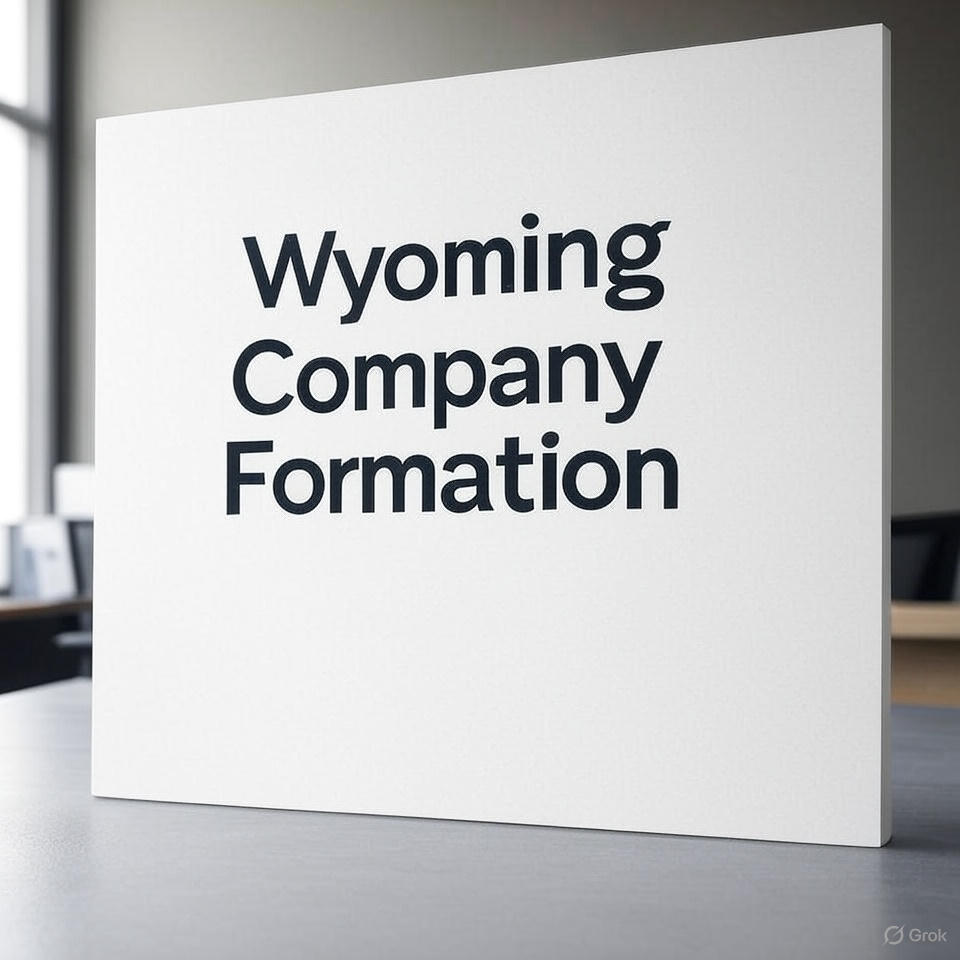Among all fifty states, Wyoming has emerged as a quiet powerhouse. It is not New York with its prestige, nor Delaware with its long history of corporate law. Yet, when the goal is efficiency, confidentiality, and cost-effectiveness, Wyoming company setup is frequently the most practical choice.
Wyoming’s Position in the U.S. Business Landscape
For decades, Delaware dominated the corporate formation market. But Delaware’s advantages—such as its sophisticated Court of Chancery—primarily serve large, publicly traded corporations. Smaller enterprises and international entrepreneurs often find Delaware unnecessarily expensive and cumbersome.
Wyoming, by contrast, has deliberately positioned itself as a jurisdiction where entrepreneurs can establish and maintain companies with minimal friction. With no state income tax, low annual fees, and some of the strongest privacy protections in the country, it has become a magnet for startups, consultants, and global investors who want a U.S. footprint without unnecessary bureaucracy.
The Wyoming Advantage
Why are more non-resident founders opting for Wyoming over Nevada, Florida, or Delaware? A closer look at the state’s legislative and regulatory framework reveals the reasons.
1. Privacy and Anonymity
Unlike most states, Wyoming does not require member or manager details to be published in public records. Ownership can remain confidential, making it highly attractive for international entrepreneurs who prefer discretion.
2. Tax Neutrality
Wyoming imposes no state income tax, no corporate tax, and no franchise tax. For businesses that operate internationally but want the credibility of a U.S. entity, this is a substantial advantage.
3. Low Maintenance Costs
Annual reports cost only a fraction of what Delaware charges, and the filing process is straightforward. This allows companies to remain compliant without draining resources.
4. Asset Protection
Wyoming pioneered the modern LLC in 1977, and its courts continue to enforce strong protections. Creditors cannot seize company assets to satisfy personal debts of members. This makes the state particularly attractive for holding investments, intellectual property, or real estate.
5. Accessibility for Non-Residents
You don’t need to live in the U.S. to own or manage a Wyoming LLC. Everything can be handled remotely through a registered agent, which is essential for international founders.
LLC vs. Corporation: Understanding the Options
Most international entrepreneurs choose to form a Limited Liability Company (LLC). The LLC offers flexibility, pass-through taxation, and minimal formalities. It is ideal for consultants, e-commerce businesses, and holding structures.
Corporations—either C-Corps or S-Corps—have their place. They are better suited to startups seeking venture capital or planning a public offering, as investors often prefer the familiarity of share-based ownership. But corporations come with more compliance obligations and formal governance requirements.
For 90% of foreign entrepreneurs, the Wyoming LLC remains the superior option.
How the Process Works
The mechanics of forming a Wyoming LLC are refreshingly simple compared to many jurisdictions. The sequence usually follows this pattern:
- Choosing a name – The business name must be unique and distinguishable from others registered in the state. Many entrepreneurs also secure the matching domain name at this stage.
- Appointing a registered agent – Every Wyoming LLC must designate a local agent with a physical address in the state. This ensures service of process and state correspondence.
- Filing Articles of Organization – This document, submitted to the Secretary of State with a $100 filing fee, legally establishes the LLC.
- Drafting an operating agreement – Though not legally required, this contract between members is critical. It defines ownership, management responsibilities, and profit-sharing arrangements.
- Obtaining an EIN – The Employer Identification Number from the IRS is essential for opening bank accounts, paying taxes, or hiring employees.
- Complying with the Corporate Transparency Act – Beginning in 2024, all U.S. entities must file beneficial ownership information with FinCEN, identifying the individuals behind the company.
- Opening a bank account – Traditional banks often require in-person visits, but fintech alternatives have made remote account opening possible for many international founders.
- Funding the entity – Members typically make an initial capital contribution, ensuring the LLC is treated as a legitimate business.
- Maintaining compliance – Filing annual reports and renewing the registered agent keeps the company in good standing.
The Cost Structure
One of Wyoming’s key attractions is affordability. The state filing fee is $100, far below Delaware’s or Nevada’s. Professional formation packages usually range between $2,500 and $5,500 depending on services included.
- Basic registration: ~$2,750. This covers state filing, articles of organization, and the first year of registered agent services.
- With EIN: ~$3,350. Essential for those who need contracts or payment processing in the U.S.
- With EIN + bank account: ~$5,500. Best suited for entrepreneurs who want a fully functional U.S. business presence.
Banking
Perhaps the greatest value of a Wyoming LLC is that it unlocks the U.S. banking system. Many global clients open accounts with American banks or fintech platforms, allowing them to accept payments in U.S. dollars, work with payment processors like Stripe or PayPal, and build credibility with international partners.
Practical Applications
A Wyoming LLC is more than just a paper company. In practice, it can serve multiple roles:
- E-commerce companies use Wyoming entities to access U.S. payment processors.
- Consultants leverage the LLC structure to contract with American clients on equal footing.
- Investors employ Wyoming LLCs to hold real estate, securities, or intellectual property.
- Family offices integrate Wyoming LLCs into broader estate planning structures, often alongside trusts.
Because it combines U.S. credibility with favorable tax treatment, the Wyoming LLC has become a global tool, not just a local one.
The Long-Term View
Forming a company is the easy part. Keeping it compliant is where many entrepreneurs stumble. Wyoming requires an annual report, which is simple compared to other jurisdictions but still mandatory.
More importantly, the new federal beneficial ownership reporting obligations mean that international entrepreneurs must think carefully about transparency.
What to Do After Forming an LLC in Wyoming
The real value, however, lies in execution. Entrepreneurs who treat Wyoming as a serious, long-term jurisdiction—rather than just a “cheap” incorporation option—gain access to one of the most resilient and reliable platforms for international business today.





